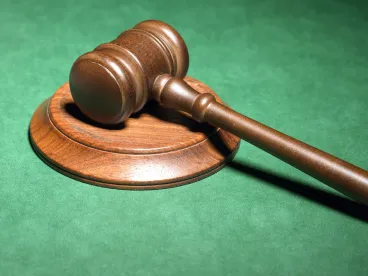When federal agents execute a warrant for paper documents during an investigation of a company, they generally seize only the documents in the warrant and leave the rest of the physical documents behind. Where it is not practical to search on site, the law permits them to take all the records and review them later. However, even in that case, once the agents have conducted the search, they return the documents that the warrant does not cover. However, this does not necessarily apply to a computer or other digital media because the agents cannot cut off a piece of a physical hard drive. Thus, agents either keep the entire physical hard drive or make a perfect copy of all its information.
With the entire hard drive in the hands of these agents, the government may seek potential evidence on the hard drive for an entirely different matter with a new search warrant for that original media, even though the government obtained the original information outside the first warrant. Whether the second search warrant in this situation violates the Fourth Amendment’s restriction of unreasonable search and seizures will be considered by the Second Circuit Court of Appeals, in New York, in United States v. Ganias (No. 12-0240). The Court voted for an en banc (the entire panel of judges) rehearing of an appeal on June 29, 2015.
In this case, the government in 2003 obtained a warrant to search Stavros Ganias’s accounting business for evidence of fraud. When executing the warrant, the agents did not seize any computers. Instead, they made perfect copies of every file on several computers and took away the copies, leaving the original computers behind. The agents copied the images onto 19 DVDs. Investigators slowly searched the DVDs, but, about a year later, they had searched the images for files responsive to the warrant. The agents kept the DVDs, which they saw as government property. Later on, agents discovered independently that Ganias may be involved in criminal tax offenses as well, and they realized the evidence of tax crimes could be on the DVDs in their possession. The agents obtained a second warrant to search the DVDs again, this time for evidence of tax offenses. The government ended up searching the DVDs under the second warrant in 2006, about two-and-a-half years after it had initially copied Ganias’s computer files.
In a split decision in June 2014, a three-judge panel ruled the government had violated Ganias’s constitutional right against unreasonable searches and seizures by collecting his personal computer files in a separate investigation of his clients, then holding the files for years before obtaining a search warrant to review them as prosecutors prepared tax charges against Ganias. The panel ruled the Fourth Amendment does not allow law enforcement to seize and indefinitely retain every file on a computer when they have only a search warrant for particular data on the computer. In a dissent, Circuit Judge Peter W. Hall said that even though he agreed the seizure was unreasonable under the Fourth Amendment, the evidence should be allowed in court because the government had acted in good faith.
In addition to reconsidering whether the government violated the Fourth Amendment by retaining Ganias’s hard drives before searching them pursuant to a warrant issued years later, the Court will take up whether investigators acted “reasonably and in good faith such that the files obtained from the cloned hard drives should not be suppressed.” Oral arguments are set for September 30, 2015, and the Court has invited amicus briefs from interested parties.




 />i
/>i

